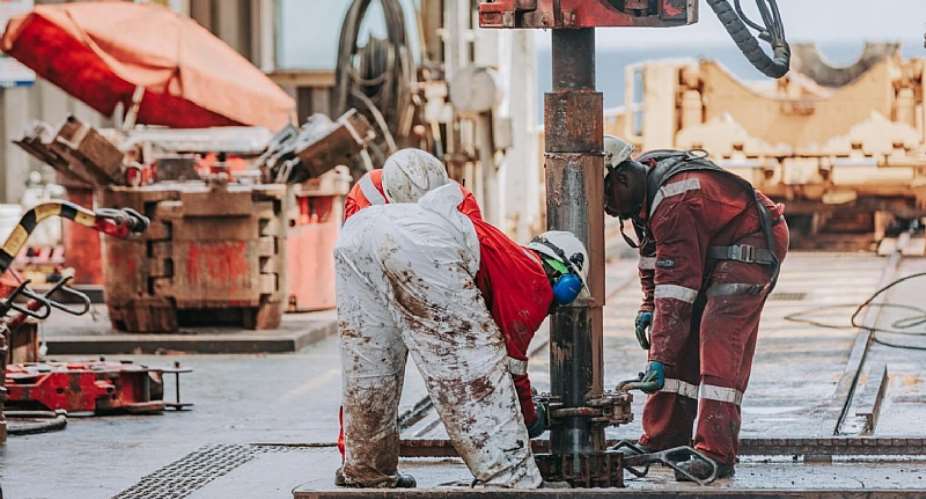While many resource-dependent African countries like Ghana can boast of large deposits of minerals as well as oil and gas, their economies are characterized by challenges including low growth, low GDP, high inflation, high budget deficits, low per capita income, corruption and conflicts among others. It is no longer news to say that resource-rich nations have failed to translate these natural resources into much desired socio-economic development for the people.
For instance, countries like Nigeria, Chad, Liberia, and Angola continue to be poor due to poor resource governance but on the other hand, countries like Chile, Botswana, and Norway with prudent and transparent management practices have benefited from their natural resource wealth. Why can’t Ghana become like the latter?
In a country where the collection, allocation, and management of petroleum revenue in a responsible, transparent, accountable and sustainable manner for the benefits of the citizens of Ghana is greatly questionable, it is only better to get much interested in knowing much about the petroleum industry.
The public enigma or conundrum of who gains the most when it comes to the exploitation of a nation’s non-renewable resources when the owner is not the resource developer or producer is an economic debate that will always keep evolving with time. Nevertheless, the gains come in many forms, but the revenue sharing as defined by the fiscal regime is arguably an important predictor of the distribution of benefits.
The petroleum fiscal regime of a country is a set of laws, regulations, and agreements which govern the economic benefits derived from petroleum exploration and production. In other words, it refers to the fiscal instruments and the contractual framework, which define a host country’s share of the wealth accruing from petroleum production through a host of instruments – bonuses, royalties, profit oil, taxes and government participating interest.
The objective of my journal is to initiate a series of publications to assess and identifies possible gaps within the Ghana petroleum upstream sector as against the Ghana Petroleum Law (Act 919), the Petroleum Regulations, the Ghana Petroleum Register and international best practices.
By this assessment, stakeholders especially my readers (the public) will know if our resources have been properly managed to the benefit of all and also they will become more informed and interested in the affairs of the Upstream petroleum business in Ghana; giving the Ghanaian public a voice in policymaking by providing high-quality public opinion analyses and advocates.
In this first series, I will unearth the introductory knowledge of the structure of the upstream petroleum fiscal regime in Ghana in a more comprehensive view for an ordinary Ghanaian to digest.
Were Investors interested in Ghana Upstream Petroleum Sector?
Decades ago, Ghana investment attraction regarding the upstream oil and gas sector was very low as a result of:...................Continue here: https://justiceoffeijr.wordpress.com/2019/11/28/the-ghana-upstream-petroleum-fiscal-regimes/





 Tuesday’s downpour destroys ceiling of Circuit Court '8' in Accra
Tuesday’s downpour destroys ceiling of Circuit Court '8' in Accra
 SOEs shouldn't compromise on ethical standards, accountability – Akufo-Addo
SOEs shouldn't compromise on ethical standards, accountability – Akufo-Addo
 Father of 2-year-old boy attacked by dog appeals for financial support
Father of 2-year-old boy attacked by dog appeals for financial support
 Jubilee House National Security Operative allegedly swindles businessman over sa...
Jubilee House National Security Operative allegedly swindles businessman over sa...
 Nobody can order dumsor timetable except Energy Minister – Osafo-Maafo
Nobody can order dumsor timetable except Energy Minister – Osafo-Maafo
 Mahama wishes National Chief Imam as he clock 105 years today
Mahama wishes National Chief Imam as he clock 105 years today
 J.B.Danquah Adu’s murder trial: Case adjourned to April 29
J.B.Danquah Adu’s murder trial: Case adjourned to April 29
 High Court issues arrest warrant for former MASLOC Boss
High Court issues arrest warrant for former MASLOC Boss
 Align academic curriculum with industry needs — Stanbic Bank Ghana CEO advocates
Align academic curriculum with industry needs — Stanbic Bank Ghana CEO advocates
 Election 2024: We'll declare the results and let Ghanaians know we've won - Manh...
Election 2024: We'll declare the results and let Ghanaians know we've won - Manh...
